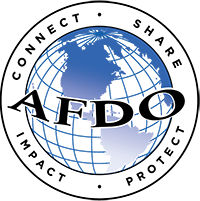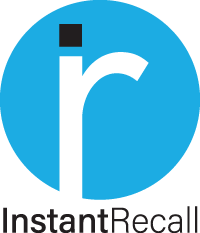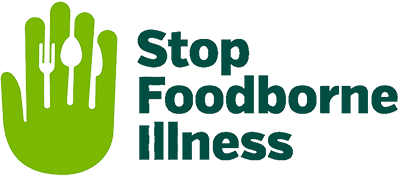2024 Agenda
The 2025 Agenda will be posted this Fall.5/6/2024
9:00 AM - 5:00 PM
Roy Fenoff, Ph.D., The Citadel

5/6/2024
9:00 AM - 6:00 PM
Dionne Crawford, McDonald's USA
Mandy Sedlak, Ecolab
Brandon Morrill, AFDO

5/6/2024
8:00 AM - 6:00 PM
Tuesday
5/7/2024
8:00 AM - 6:00 PM
Joetta DeFrancesco, NEHA

5/6/2024
8:00 AM - 6:00 PM
Tuesday
5/7/2024
8:00 AM - 6:00 PM
Wednesday
5/8/2024
1:00 PM - 6:00 PM
Pilot Participant Course
Martin Bucknavage, Penn State

5/7/2024
8:30 AM - 11:30 AM
Spir Marinakis, Maple Leaf Foods
Jorge Hernandez, The Wendy's Company
Cindy Jiang, McDonalds - Retired
Deb Kane, J&J Snack Foods Corp.
Emma Gometz, The Science Friday Initiative broadcast on NPR
John Crabill, Chipotle Mexican Grill
Linda Manning, Transformational Coach
5/7/2024
12:30 PM - 2:30 PM
Kathleen O'Donnell, Wegmans Food Markets
Rosalind Zils, Reckitt
Andy Kennedy, New Era Partners, formerly FDA
Christopher Waldrop, M.P.H., Center for Food Safety and Applied Nutrition, FDA
Patrick Guzzle, National Restaurant Association
Drew McDonald, Taylor Farms
Michael Lookup, Wegmans Food Markets

5/7/2024
12:30 PM - 2:30 PM
Sharon Beals, SKKB-LLC
Rebecca Guzy, Frick's Quality Meats
Larry Keener, International Product Safety Consultants
Donna Schaffner, Retired from Rutgers University
5/7/2024
3:00 PM - 5:00 PM
Bill Lachowsky, WML Consultants
Lexi Palacios, Centers for Disease Control and Prevention
Robin Forgey, Costco Wholesale
Donna Schaffner, Retired from Rutgers University
Chris van Twuyver, FDA
Karen Blickenstaff, MS, FDA's Coordinated Outbreak Response and Evaluation Network

5/7/2024
3:00 PM - 5:00 PM
Alvin Lee, Ph.D., Institute for Food Safety and Health
Tina Gettis, Institute for Food Safety and Health
Matt Stasiewicz, Ph.D., University of Illinois at Urbana-Champaign
Brendan Ring, Creme Global
Michael Walton, BCD iLabs
5/7/2024
5:00 PM - 7:00 PM
Welcome Reception on the Show Floor!
5/8/2024
8:00 AM - 9:00 AM
Donna Schaffner, Retired from Rutgers University
Sara Mortimore, formerly with Walmart
Andrew Clarke, Loblaw Companies Limited
5/8/2024
8:00 AM - 9:00 AM
John Butts, Ph.D., FoodSafetyByDesign, LLC
Felice Arboisiere, Dole
5/8/2024
8:00 AM - 9:00 AM
Erik Mettler, FDA
Mitzi Baum, Stop Foodborne Illness

5/8/2024
8:00 AM - 9:00 AM
Melody Ge, Women in Food Safety
Jill Hoffman, B&G Foods Inc
Jacqueline Southee, FSSC 22000
Damarys Del Castillo, Sigma
5/8/2024
9:15 AM - 10:30 AM
Being Right is Not Enough: Leading Food Safety in a Corporate and Global Environment
Chief Food Safety and QA Officer, Yum! Brands, Inc.

5/8/2024
10:30 AM - 2:30 PM
Lunch served each day*
*Excludes Exhibit Hall Only badges
View the Solutions Stage Schedule
View the Tech Tent Schedule
View the Podcast Theater Schedule
5/8/2024
2:45 PM - 4:00 PM
Monica Khoury, Nestle
Megan Kenjora, Hersheys
5/8/2024
2:45 PM - 4:00 PM
Natalie Dyenson, MPH, International Fresh Produce Association
Keith Warriner, Ph.D., University of Guelph
Dan Horan, Wegmans Food Markets
Francis Adenuga, Church Brothers/True Leaf Farms
Yaguang (Sunny) Luo, Ph.D, USDA-ARS
5/8/2024
2:45 PM - 4:00 PM
Roger Muse, ANAB
Kathy Knutson, Kathy Knutson Food Safety Consulting
Heather Krug, State of Colorado
Lori Dodson, Maryland Cannabis Administration
5/8/2024
2:45 PM - 4:00 PM
Jay Ellingson, Kwik Trip, Inc.
Raquel Maymir, General Mills, Inc.
Dionne Crawford, McDonald's USA LLC
Natalie Adan, Georgia Department of Agriculture
5/8/2024
4:15 PM - 5:30 PM
Glenda Lewis, MSPH, FDA
Mike Learakos, Abound Food Care
Susan Mooney, EPA
Dr. Eric Handler, Public Health Perspective
Wayne Melichar, Feeding America
5/8/2024
4:15 PM - 5:30 PM
Nickolas Waters, Sysco
Kim Rice, Rose Acre Farms
Natalie Adan, Georgia Department of Agriculture
Sarah Gallo, Consumer Brands Association

5/8/2024
4:15 PM - 5:30 PM
Sanjay Gummalla, Ph.D., American Frozen Food Institute
5/8/2024
4:15 PM - 5:30 PM
Tim Jackson, FDA
Tim King, Quality Matters LLC
Brendan Niemira, Ph.D., USDA
John N. Butts, Ph.D., FoodSafetyByDesign, LLC
Natalie Dyenson, International Fresh Produce Association
5/8/2024
5:30 PM - 7:00 PM
Food Safety Summit Gives Back Reception benefitting Stop Foodborne Illness

5/9/2024
8:00 AM - 9:00 AM
Britanny Saunier, Partnership for Food Safety Education
Dr. Stan Osuagwu, Home Chef
Steve Mandernach, AFDO
5/9/2024
8:00 AM - 9:00 AM
Glenda Lewis, FDA
5/9/2024
8:00 AM - 9:00 AM
Brendan Niemira, Ph.D., USDA
Purnendu Vasavada, Ph.D., Professor Emeritus

5/9/2024
8:00 AM - 9:00 AM
Alison Grantham, Ph.D., Grow Well Consulting
5/9/2024
9:15 AM - 10:30 AM
Real Time Conversation with FDA, CDC, USDA and AFDO
James Jones, FDA
Sandra Eskin, USDA
Robert Tauxe, M.D., M.P.H., CDC

5/9/2024
10:30 AM - 2:30 PM
Lunch served each day*
*Excludes Exhibit Hall Only badges
View the Solutions Stage Schedule
View the Tech Tent Schedule
View the Podcast Theater Schedule
5/9/2024
2:45 PM - 4:00 PM
Jennifer Fernan, J&J Snack Foods Corp.
Jorge Hernandez, The Wendy's Company
Rich Polinski Jr., Wegmans Food Markets

5/9/2024
2:45 PM - 4:00 PM
Janet Riley, Janet Riley Strategies
Andrew Clarke, Loblaw Companies Limited
Mark Beaumont, Danone
5/9/2024
2:45 PM - 4:00 PM
Tülay Kahraman, World of Auditing
Adrienne Blume, M.A., Food Safety Magazine
5/9/2024
2:45 PM - 4:00 PM
Liz Presnell, Food Industry Counsel LLC
Nick Rowley, Kellanova
Sara Mortimore, formerly with Walmart

5/9/2024
4:15 PM - 5:30 PM
S21 Food Safety Culture: The Journey Continues Presented by FDA and Stop Foodborne Illness
Vanessa Coffman, Ph.D., Stop Foodborne Illness
Conrad Choiniere, Ph.D., FDA
Megan Kenjora, Hersheys
Ola Afolayan, Kellanova
Karen McCarty, Agropur
Jorge Hernandez, Wendy's

Certified Professional–Food Safety (CP-FS) Credential Review Course
Monday, May 6; 8:00am - 6:00pmTuesday, May 7; 8:00am - 6:00pm
This course was developed by industry experts from across the country to provide participants with a review of the knowledge and skills necessary to pass the CP-FS Credential Exam. It also provides a solid overview of food safety standards and practices. This course provides the knowledge and skills necessary to help ensure safe food in any retail environment—as a quality assurance or quality control manager, a facility manager, a food-safe chemical supplier, or as a regulatory inspector/investigator. This review course is presented by the National Environmental Health Association (NEHA).
Speakers
HACCP for Food Processing Personnel
Monday, May 6; 9:00am - 5:00pm
Tuesday, May 7; 9:00am - 5:00pm
Wednesday, May 8; 1:00pm - 5:00pm(exam)
This 20-hour class given over 2.5 days covers the information needed for writing a Hazard Analysis and Critical Control Points (HACCP) Plan, as required by USDA for FSIS-regulated meat, poultry, or egg products, or for those producing foods under GFSI-format third-party audits requiring a HACCP-certified individual to oversee their food safety plan. Participants will gain information for creating, implementing, and documenting a HACCP program. Certificate provided by the International HACCP Alliance.
Speakers
Food Fraud Prevention Workshop and Certificate Course
Monday, May 6; 9:00am - 5:00pm
Food fraud prevention is one of the most urgent and misunderstood food industry topics. This workshop begins with an overview of the food fraud problem before quickly shifting from “how to catch food fraud” to “how to prevent food fraud from occurring in the first place.” Building upon that overview, the afternoon will shift to conducting a food fraud vulnerability assessment. This assessment is a requirement for the food safety certifications such as BRC, FSSC 22000, IFS, SQF, and others. These standards are based on the Global Food Safety Initiative (GFSI) benchmark. The workshop ends with a focus on food fraud prevention strategy and full implementation of a management system. Certificate provided by the Food Fraud Prevention Think Tank.
Speakers
Active Managerial Control for Leaders
Monday, May 6; 9:00am - 6:00pm
The new AMC workshop for industry is designed to challenge franchisees and operations leaders by exploring the relationship between food safety culture, food safety management systems, and operational excellence within your organization. And best of all, the participants of this new AMC for Leaders workshop will have the option to access the AMC for Leaders Train-the-Trainer course, held virtually. This Train-the-Trainer course will provide your operation with the necessary tools, resources, and training to enable you to facilitate the AMC for Leaders workshop within your organization!
Speakers
Preventive Controls for Human Food Version 2.0
Pilot Participant Course
Monday, May 6; 8:00am - 6:00pm
Tuesday, May 7; 8:00am - 6:00pm
Wednesday, May 8; 1:00pm - 6:00pm
This 2.5-day certificate course is being offered at the participant level (not Lead Instructors) to pilot the newly updated FSPCA Preventive Controls for Human Food (PCHF) curriculum Version 2.0. Participants will receive a Version 2.0 certificate of completion from FSPCA. The course focuses on the Current Good Manufacturing Practices, Hazard Analysis and Risk-Based Preventive Controls for Human Food regulation and is intended to ensure safe manufacturing/processing, packing, and holding of food products for human consumption in the U.S.
Course highlights include:
- The Version 2.0 course is a new update to the Version 1.2 standardized curriculum recognized by FDA. Completing this course is one way to meet the requirements for a Preventive Controls Qualified Individual (PCQI), who has successfully completed training in the development and application of risk-based preventive controls.
- Version 2.0 of the PCHF curriculum integrates information from FDA's recently issued Hazard Analysis and Risk-Based Preventive Controls for Human Food draft guidance including updates to the hazard analysis course chapter which now includes use of FDA’s Appendix 1 – Known or Reasonably Foreseeable Hazards and updates to the allergen chapter which now includes sesame.
- This new updated version of the course also improves linking Preventive Controls to HACCP to help those who operate primarily under HACCP.
- The registration fee for the course includes certificate of completion, course materials, breakfast and lunch on Monday and Tuesday, and complete access to the Food Safety Summit during non-course hours, including the Keynote and Town Hall, education sessions, networking receptions, and access to the Exhibit Hall, which includes lunch on Wednesday and Thursday.
- There is no exam required to complete the course; however, knowledge checks are administered throughout the course.
Speakers
Advancing Food Safety Business Leaders to Drive Results for Maximum Impact
Join seasoned professionals, at an interactive workshop, as they share their insights as to why food safety leadership is critical to the success of your career path and to your business. Learn about targeted tools and resources that can be applied at every level of your journey. This workshop will help you identify your strengths and opportunities in leadership and offer targeted tools from several proven Food Safety leaders. Come prepared to make new contacts and network with colleagues.
Speakers
Traceability - Best Practice Sharing
Traceability programs are an important component of food safety and quality programs. The design and management of these programs has represented challenges and opportunities for companies across the supply chain. The FDA Food Traceability Rule, released in November 2022, introduces regulatory traceability requirements for a range of food products. As the implementation date of January 2026 approaches, companies are identifying needed modifications to their traceability programs as questions on compliance to the rule. Join a panel of government and industry excerpts who will share their insights into the implementation of the rule, discuss challenges companies are facing as they prepare for the rule and actionable solutions.
Speakers
Building Blocks for a Food Safety System
How a company develops, trains, and executes a food safety program is paramount in today’s ever-changing manufacturing, foodservice and retail environments. Please join us for this dynamic workshop on understanding the basics of food safety building blocks with lessons learned throughout history.
- Discuss how to build and maintain a strong food safety culture and food safety programs.
- Explore food safety training approaches and when to incorporate in-person vs. electronic training.
- How should smaller companies approach food safety programs and training?
- Good Manufacturing Practices (GMPs).
- Hazard Analysis (sources and vectors).
- Cross-functional QA/QC programs.
Speakers
The Life of an Outbreak Investigation – From the First Case Patients to the Courthouse
When a foodborne illness outbreak is solved, it is often the result of the cumulation of months (if not years) of hard work by state and local health departments, CDC, and federal regulators. After the initial work is done, the source is determined, and the recalls are announced, many solved foodborne illness outbreaks will result in years of media coverage, regulatory scrutiny, and costly civil lawsuits for the companies involved. In this session you will learn:
- How state and local public health officials work with CDC (using epidemiology and technologies such as WGS) to solve outbreaks
- How the regulators and media will respond to your company when foodborne illness outbreaks occur
- How plainitff trial lawyers will assert and pursue legal claims on behalf of injured consumers
- How many of these claims, following years of litigation and discovery, are eventually resolved
Speakers
Using Big Data and AI to Advance Food Safety
The food industry is constantly evolving, and artificial intelligence (AI) is playing an increasingly important role in improving food safety. But there is still a lot of confusion about what AI is and what it really means to be using AI for improving food safety. In this hands-on workshop, our panelists will first present case studies of big data and AI in food safety. Then, we’ll break into groups of similar industries to answer these questions: What’s the biggest challenge in your company and broader industry? What data do you have to help tackle these challenges? What data do you need? These top issues will feed into a larger discussion as our panelists offer suggestions on how big data and AI may be used to tackle these issues. Bring your questions, challenges, and experiences to share and walk away with actionable steps for harnessing AI wisely.
Speakers
HACCP for Safe Food: Not Just for the Certificate
HACCP is a program that is still underutilized. Despite most companies maintaining long-standing HACCP and food safety management plans, many food safety incidents and recalls continue to occur, with auditors and regulators globally finding significant gaps.
We will discuss the reasons for some of the weaknesses and why we need to revitalize and integrate HACCP more effectively into our food safety culture efforts to ensure safe food. HACCP requires a comprehensive hazard analysis at its foundation; without this analysis, HACCP plans are flawed and, therefore, confidence in the system is eroded. We will discuss the utilization of knowledge gained during HACCP training and its direct relationship to the impact made by the HACCP team. Ultimately, real-world HACCP is a combination of culture and systems. We wrap up by looking at company and plant culture, psychosocial factors, and their impact on hazard analysis.
Speakers
Applying the Principles of Microbiological Process Control and Sanitary Design
Most food processing equipment poses some degree of microbiological risk. The recognition and measurement of that risk is a focus of this session. Sanitary design improvements of three high risk pieces of equipment (meat slicer, hot dog peeler, & lettuce field harvester) will be shared. Equipment sanitary design concerns must be mitigated through effective sanitation practices and routine preventative maintenance must maintain the water resiliency of equipment subassemblies to prevent water ingress. These design changes represent data driven preventive controls. Methods to validate and verify these preventive controls will be shared.
Speakers
Recall Modernization
The safety of consumers is a priority shared by the industry and FDA. It is encouraging that the FDA is engaging with industry on recall modernization, a key element of the agency’s human foods program redesign and planned structural, governance, and leadership reforms. Hear about Consumer Brands’ FDA Modernization Campaign to elevate the agency to operate at the speed of the consumer, including updating its product recall process and the procedural and policy reforms critical to ensure that FDA’s recall system can effectively protect American consumers, ensure the resiliency and sustainability of the food supply, and keep industry viable.
Speakers
Women in Food Safety: Be and Stay Unstoppable
A candid conversation and interactive discussion around women in food safety for the show, place and win of it all. Digging into the challenges faced and overcome with real world examples followed by small group conversations. Interactive session with time listen, share, and learn together. You will not want to miss this session to truly support yourselves and lift others alongside you.
Speakers
Root Cause Analysis: Putting It To Work For You
To develop truly effective solutions, the first step is to properly understand the problem that needs to be solved. Where nonconformity is concerned, a superficial analysis of a problem may result in a solution that doesn’t address the real source or root cause of the issue. This “fix that doesn’t fix” represents lost time and effort, and worse, a problem that is still a problem. Join subject matters experts as they review root cause analysis; putting it to work for you where practical problem-solving tips and tools will be demonstrated. The session will include case studies to assist in training analysis teams.
Speakers
Produce Safety - Changes Underway
It’s clear that traceability, agricultural Water Rule, and learning from recent illness outbreaks are hot topics in produce food safety. Come join us for an in-depth session on changes underway to address opportunities in enhancing produce food safety.
Speakers
Exploration of the Intersection of Cannabis and Food
This session will continue to delve into the intersections between the cannabis and food industries. This session will examine aspects of the cannabis/food industry interactions on three different levels: farming, processing and regulatory. Guest speakers will introduce their topics, then time for questions, answers and discussions will ensue.
Speakers
New Food Delivery and the Impact of E-Commerce
E-commerce has revolutionized how consumers shop for food, offering convenience and accessibility like never before. In this symposium, we will delve into the critical aspect of food safety within the e-commerce landscape, focusing on regulatory considerations, perceived risks, and food safety processes in place to ensure safe delivery of food to consumers.
Speakers
Empowering Sustainability: The Impact of Food Loss and Waste and Feeding the Needy
This session will cover the negative impacts of food loss and waste as well as its effect on food insecurity, poverty, and the environment. Learn and identify how a focus on food safety and food system enhancements can be a solution that provides bottom-line benefits while positively impacting the health of individuals, communities, and the environment. Learn about the advantages and challenges associated with state-mandated organics reduction and food donation programs.
•Attendees will be more aware of the issue of food loss and waste and discover how an optimized food system can reduce food waste and maximize the impact of excess edible food.
•Attendees will learn how to overcome the unintended consequences associated with mandated food recovery programs.
•Attendees will learn how we can impact the health of individuals, communities, the environment, and incorporating sustainability toward lessening the carbon footprint through the reduction of food loss and waste.
Speakers
State Laws, Regulations and Their Impact on Food Production, Manufacturing, Supply Chain and Retail
The production and movement of food products and agriculture commodities through the supply chain has gotten more complex through a patchwork of state specific laws affecting every aspect of your food production and sales including production standards, packaging restrictions, and labeling nuances just to name a few. This panel of experts for this session will provide an overview of some of these laws and regulations and how they are changing food safety and productions practices in many cases for their entire operations based on a requirement in a single state. This will highlight the need for a complex regulatory review of laws and regulations within the states you are operating in and in many cases also states that your products are being sold in or even transshipped through.
Speakers
Viruses in Foods: Developments over the Last Year
Human norovirus and hepatitis A virus remain important causes of foodborne disease. While they officially “emerged” about 20 years ago, several important initiatives were completed in early 2024. The first presentation will cover the findings of the U.S. FDA Frozen Berry Surveillance Sampling Plan, and their current and future implications for the industry. The second presentation will focus on the report of the Joint FAO/WHO Expert Meeting on microbiological risk assessment of viruses in foods Part 1: food attribution, analytical methods, and indicators, a consultation which occurred in September, 2023. The talks will be followed by audience interaction with speakers to understand national and global directions relative to scientific developments, testing, and policy decision-making regarding management of foodborne viruses.
Speakers
How to Effectively Collaborate with Regulators
Food businesses benefit from a positive and collaborative relationship with regulators. Learn more about some of the best practices about building these collaborative relationships and working with regulators through challenging situations from both your colleagues and regulators. Key discussions will include how to develop relationships, responding to violations, expressing concerns with inspections.
Speaker
How to Utilize the Alliance’s Food Safety Culture Toolkit to Create a Positive, Robust Culture
The workshop will follow a flow and format inspired by the discussion modules in the Toolkit. The other published tools (e.g., Gamification, Popular Culture) will be integrated into the session to demonstrate ways in which they can be leveraged to build relationships, create a sense of unified culture, and engage others in the process. Participants will learn how to navigate the website, what tools are available, and ways to best utilize them to advance their company’s food safety culture.
Speakers
New Era, Old Problems: The Emerging and Re-Emerging Pathogens
Reported incidence of emerging, re-emerging, less recognized and opportunistic pathogens linked to outbreaks of food and waterborne illness in Europe and the U.S. have been increasing due to changes in etiological agents, hosts and the environment. It is increasingly recognized that many otherwise commensal organisms can become pathogens under right conditions, in a right host and, if consumed in sufficient quantities. Opportunistic pathogens such as Legionella and Mycobacterium that are resistant to disinfection have been link to drinking water outbreaks while Aeromonas spp. have been linked to seafoods. Emerging pathogens such as Streptococcus spp. have posed human risk infection via milk and cattle while over the last decade, foodborne illness due to Noroviruses, Hepatitis A and E viruses, Rotaviruses and Astroviruses have been reported. Positive Hepatitis E RNA detection have been found in many RTE foods, processed meat products, milk and shellfish. With our food increasingly being made from ingredients sourced globally and year-round availability of certain seasonal fresh produce, fruits and vegetables, the RTE and minimally processed foods have allowed the emergence of some of these pathogens with opportunistic tendency to come to the forefront of food safety. More troubling is the incidence of these pathogens in novel food sources. Speakers will cover how genomics and molecular factors affect microbial pathogenesis, methods for rapid detection, how microbial evolution and exposure to environmental stressors and interaction of microorganisms within biofilm can potentially change the microbial characteristics and behavior. Learn about their food safety implications and impact on risk management and food safety plans.
Speakers
Food Code Adoption/ Harmonization
The most revered document used in the US food and beverage industry as a trusted guide to food safety is known as the Food Code, which is created and published by the FDA. The Food Code consists of broad guidelines made available to industry to produce safe products for the general public. However, every state, county, or city reserves the right to implement the Food Code as is or change it to higher standards and or make it more comprehensive for local businesses without violating the fundamental requirements. Consequently, major interpretation differences may be found in state and local health agencies for the safe handling of products. It is evident that there is a lack of adoption and harmonization of the Food Code to boost food safety standards throughout the USA. As food safety people, how do we promote adoption and harmonization of the Food Code?
Speakers
The Impact of Climate Change and Sustainability on Food Safety
Global climate change has and will continue to make significant impacts on the food supply chain, including food safety. Many of the so-called sustainability efforts are designed to address climate-related issues in food and agriculture. The first presentation will provide an overview of the current and anticipated impact of climate change on food safety. The second presentation will familiarize the audience with the concept of sustainability and provide examples the kinds of initiatives that industry is engaged in, and how they might influence the safety of foods across the supply chain and over time. The talks will be followed by audience interaction with speakers as we seek to dialogue about how these emerging issues might manifest over the next few decades, likely to become an important part of the future careers of young professionals.
Speakers
When a Food Allergen is Your Enemy
Millions of Americans have food allergies and may experience adverse reactions to products that have food allergens. Most reactions cause mild symptoms, but some are severe and may even be life-threatening. Although new treatments are being developed, there is no cure for food allergies. What can we do as food safety professionals?
Speakers
Food Safety Culture and Communication:Learn from Industry Leaders How to Leverage Your Strengths
Learn from an expert panel how to strengthen your food safety culture -- and anchor your communications in it to ensure good food safety outcomes. Hear why and how your communications must be both well-planned and adaptable to stakeholders and circumstances.
During the session, attendees will benchmark their organizations’ food safety cultural maturity and their personal communications skills against peers. Learnings can be used to strengthen culture and communications to improve food safety outcomes and confidence on routine days – and during crises such as recalls. Learn how to tailor food safety information for customers, regulators, consumers, media and team members. Increase sensitivity to cultural and generational differences in receiving, processing and acting upon messages.
Food safety leaders and communications experts will share their experiences and outline best practices, offering practical wisdom and tips that you can leverage at your operation.
Speakers
The Future of Food Safety Auditing
Step into the future of food safety auditing as we unveil the compelling outcomes of the "Future of Food Safety Auditing Think Tank.”. This dynamic, crossbench initiative has brought together over 30 seasoned professionals from 18 countries, with an average of 25 years of experience and from diverse backgrounds (industry, scheme owners, certification bodies, auditors, consultants, academia, and intergovernmental organizations), pooling their collective expertise and insight to support interested parties and governing organizations in improving and shaping the discipline's future. Key Highlights: SWOT Analysis of the Current Landscape: Gain a high-level understanding of the strengths, weaknesses, opportunities, and threats facing the present state of food safety auditing. Stakeholders' Collective Voice: Listen to the resonant voices of stakeholders as they emphasize the top priorities that demand attention in the field of food safety auditing. Proposed Solutions: Explore the recommendations presented by the Think Tank for addressing the challenges and opportunities identified, and help shaping the future of food safety auditing .
Speakers
Impact of Legacy Facilities and Equipment on Achieving Food Safety
In food manufacturing infrastructure is key to the production, packaging and distribution of safe food products. Over time the key elements of infrastructure must be upgraded and updated to in order to keep pace with changing food safety threats. Older building and facilities and the processing equipment contained in them must reflect the current state of the science for design criteria in order to effect proper pathogen control. New food safety threats demand new assessments of risk and this will also require new methods for mitigating those risk. Threats are typically associated with the food processing environment, processing methods, machines, human power, and materials. Hygienic design is critical to avoiding food safety failures.
Speakers
Food Safety Culture: The Journey Continues Presented by FDA and Stop Foodborne Illness
As the FDA and the Alliance to Stop Foodborne Illness webinar series draws to a close, celebrate the journey so far and adventures on the horizon! Join us as we bring together leaders in the field to discuss the value of ongoing commitment to food safety culture. Prior panelists and new voices will answer your questions and examine resources to help you drive positive change, inspire food safety champions, and adapt to new challenges.
Speakers
Being Right is Not Enough: Leading Food Safety in a Corporate and Global Environment
Leading Food Safety in a corporate and global environment is a daunting task that requires much more than the technical credentials young leaders often depend on. Coaching and developing the next generation of Food Safety Leaders means changing the narrative and building Business Leaders who lead Food Safety. Themes that will be discussed include Finding your way as a Food Safety Leader in the corporate environment is challenging for new leaders. Influencing and driving change requires more Art than Science and many are only equipped with the Science. Credibility means building trust. Focus on building authentic relationships during peace time that carry you through conflict. Governance and authority; where do they come from and how not to flex either.
Keynote Speaker
Real Time Conversation with FDA, CDC, USDA and AFDO
Food Safety Summit Educational Advisory Board Chair Gillian Kelleher, CEO of Kelleher Consultants LLC, will lead the Town Hall Q&A with the leaders of four prominent food safety government agencies and advisory organizations:
•FDA's James (Jim) Jones, the new Deputy Commissioner for Human Foods, will join the panel for the first time to discuss the increasing responsibility importers have under the Foreign Supplier Verification Program (FSVP). He will also address the reorganization of the FDA and the impact of those changes, the FSMA Proposed Rule on Agricultural Water, the new Produce Safety Coalition, and much more.
•CDC's Rob Tauxe, M.D., M.P.H., Division Director, will once again provide an update on the PulseNet data platform for whole genome sequencing and announce that Cronobacter will be included in PulseNet tracking going forward. He will also address the health burdens of foodborne illness using whole genome sequencing in PulseNet, and source attribution with an emphasis on Salmonella.
•USDA's Sandra Eskin, Deputy Under Secretary for Food Safety, will focus on Salmonella control efforts in poultry, truth in food product labeling, and the case for updating the Safe Handling Instructions label.
•AFDO's Steven Mandernach, Executive Director, will address resources for the FDA's Human Foods Program, AFDO’s work in retail and the path to risk-based inspections, and the impact of AFDO’s work with coalitions and alliances.




